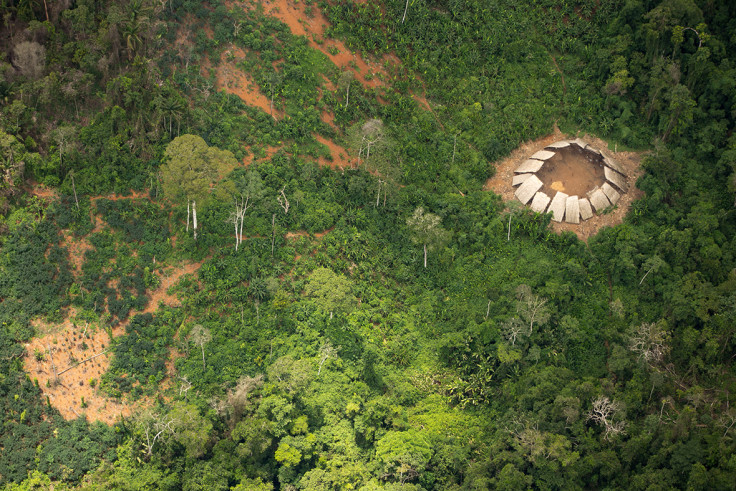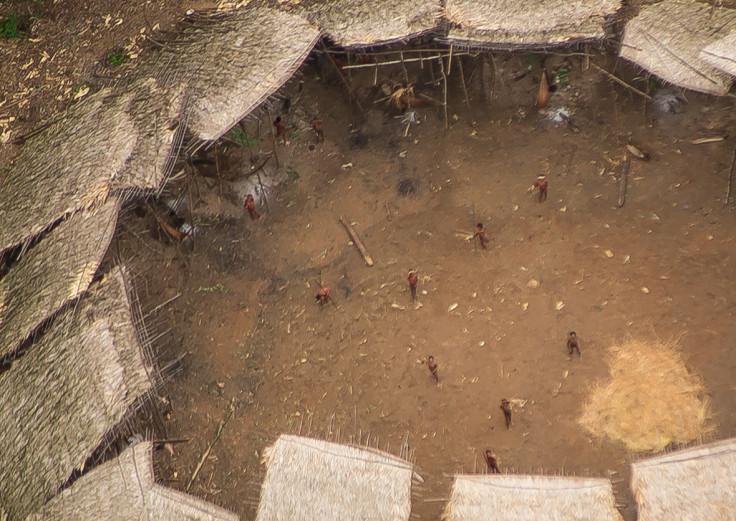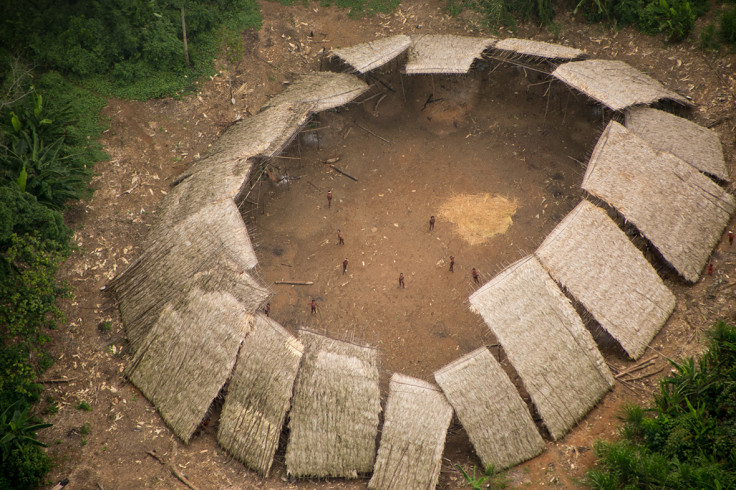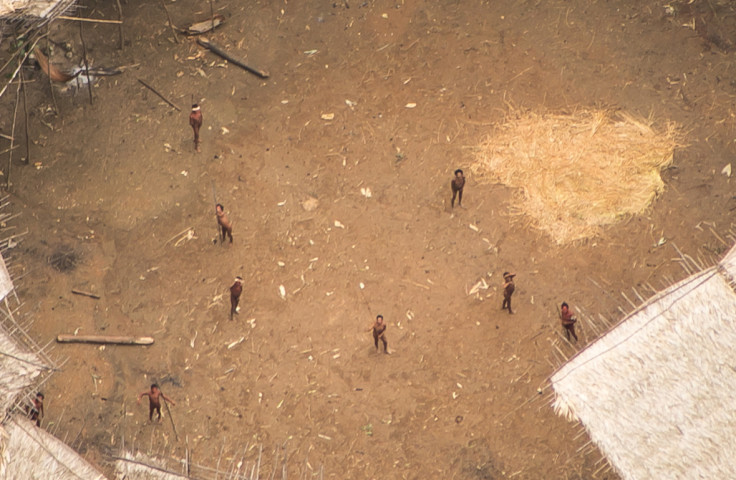New photos show uncontacted Amazon tribe resisting modern threat to their existence
The images were captured as part of an investigation into 5,000 miners illegally operating in the tribe's territory.

Aerial photos of an uncontacted tribe mark their first sighting in over a year, showing they are resisting the existential threat to their livelihood brought by illegal mining in the Amazon area.
The pictures show a typical Yanomami yano, a large communal house for several families. Each of the square sections of the yano is home to a different family, where they hang their hammocks, maintain fires, and keep food stores.
The community's village was found in the Yanomami indigenous territory in the north of Brazil, close to the Venezuelan border.
An estimated 22,000 Yanomami live on the Brazilian side of the border, and at least three groups have no contact with outsiders.
The tribes are vulnerable to violence and disease from outsiders, particularly illegal gold miners who have brought malaria to the region and polluted Yanomami food and water sources with mercury.
The images were captured as part of an investigation by Brazilian authorities into the estimated 5,000 miners illegally operating in the Yanomami territory, which was recognised in 1992 after years of international campaign.
Fiona Watson of NGO Survival International, which advocates for the rights of uncontacted tribes, told the Guardian the images brought both good and bad news. On one hand, it was positive to see that the Moxihatetema tribe has added two more thatched panels than in the past, which suggested the community is growing.

On the other hand, the village seemed to be in close proximity of the mining sites which represent an existential threat to the tribe, particularly at a time where protection by the authorities is diminishing. The Brazilian agency responsible for indigenous land, the National Indian Foundation (Funai), is facing severe budget cuts as part of the austerity policy of Brazil's new president, Michel Temer. Survival International fear the cuts could shut down six out of 12 uncontacted tribes teams, including the one dedicated to protecting the Yanomami.
"Funai closed its field base in this region last year, effectively abandoning the Moxihatetema to their own fate," said Watson . "We are urging for funding for the uncontacted and recently contacted Indians department in Funai to be increased or at least maintained."
Who are the "uncontacted" tribes
Survival International defines uncontacted tribes as tribal peoples who have no peaceful contact with anyone in the mainstream or dominant society.
These could be entire peoples or smaller groups of already contacted tribes. In the past, some may have had contact with society, but then retreated from the violence which that brought. Some may once have been part of larger tribal groups, and split off and moved away, fleeing contact.
Yanomami shaman and tribe spokesman Davi Kopenawa Yanomami said: "The place where the uncontacted Indians live, fish, hunt and plant must be protected. The whole world must know that they are there in their forest and that the authorities must respect their right to live there." Of the miners he said: "They are like termites – they keep coming back and they don't leave us in peace."
The Yanomami tribe has been fighting against the miners for decades. In an interview published in 1991, during his fight to get the Yanomami territory recognised, Davi Kopenawa described the impact the mining companies have had on the life of the tribe: "The miners invaded our reserve and came to our communities feigning friendship; they lied to us, they tricked us Indians, and we were taken in. Then their numbers grew; many more arrived, and they began bringing in machinery that polluted the river. The pollution killed the fish and the shrimp, everything that lived in our rivers."
In March 2016, new data showed alarming rates of mercury poisoning amongst the Yanomami and Yekuana tribes in the Amazon rainforest, finding that over 90% of Indians in one region are severely affected.

Survival International opposes attempts by outsiders to contact them: "It's always fatal and initiating contact must be their choice alone. Those who enter uncontacted tribes' territories deny them that choice," they write. But that choice is increasingly driven by fear for their survival, as the Acre Indians tribe that contacted Funai in 2014 explained that "violent attacks" by outsiders had driven them from the forest. An interpreter for the tribe reported: "The majority of old people were massacred by non-Indians in Peru, who shot at them with firearms and set fire to the houses of the uncontacted."
Anthropologist Robert Walker told the BBC at the time: "Everywhere you look, there are these pressures from mining, logging, narcotrafficking and other external threats. My worry is that if we have this 'leave-them-alone' strategy, at the end of the day the external threats will win. People will just go extinct."

© Copyright IBTimes 2025. All rights reserved.





















